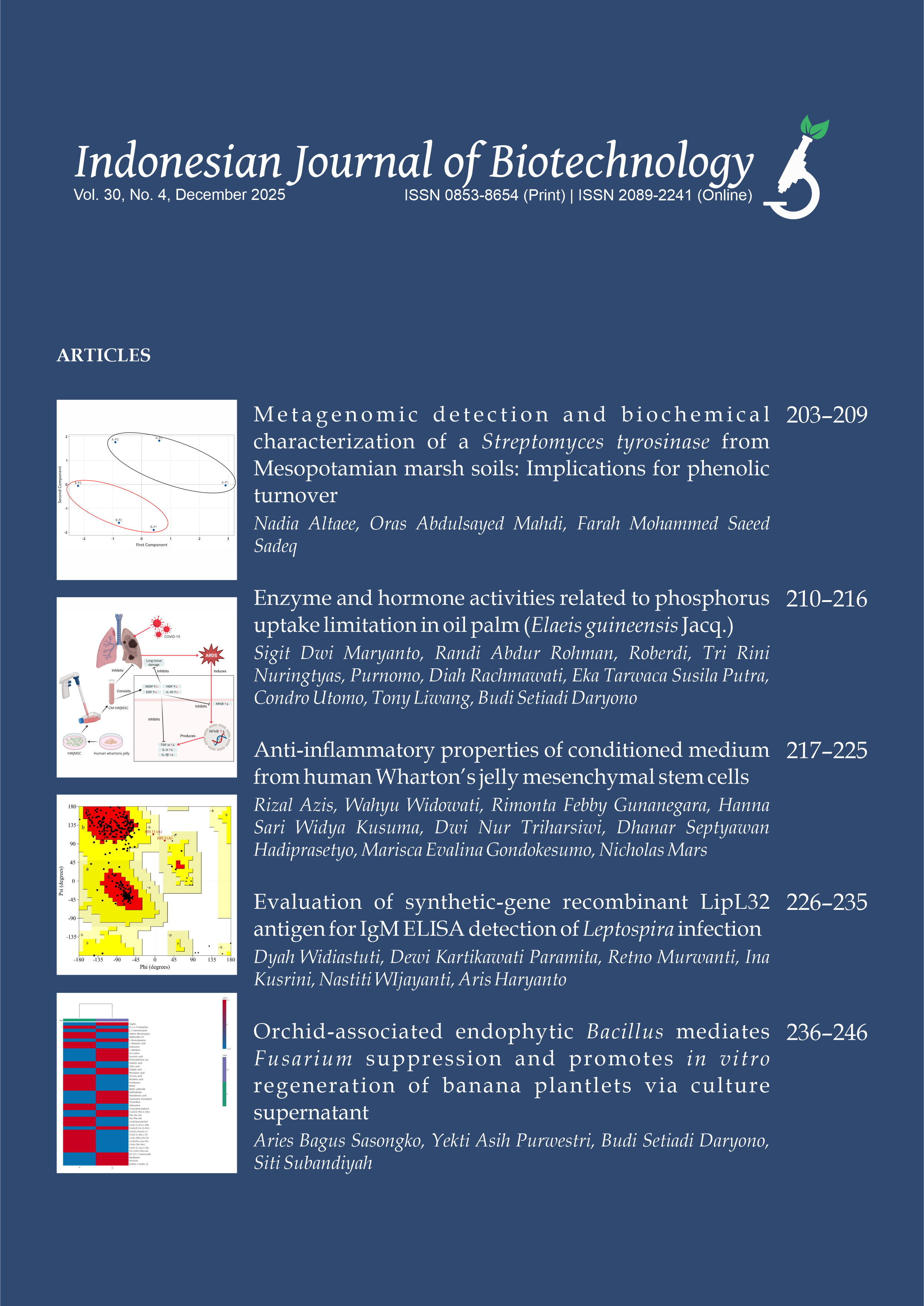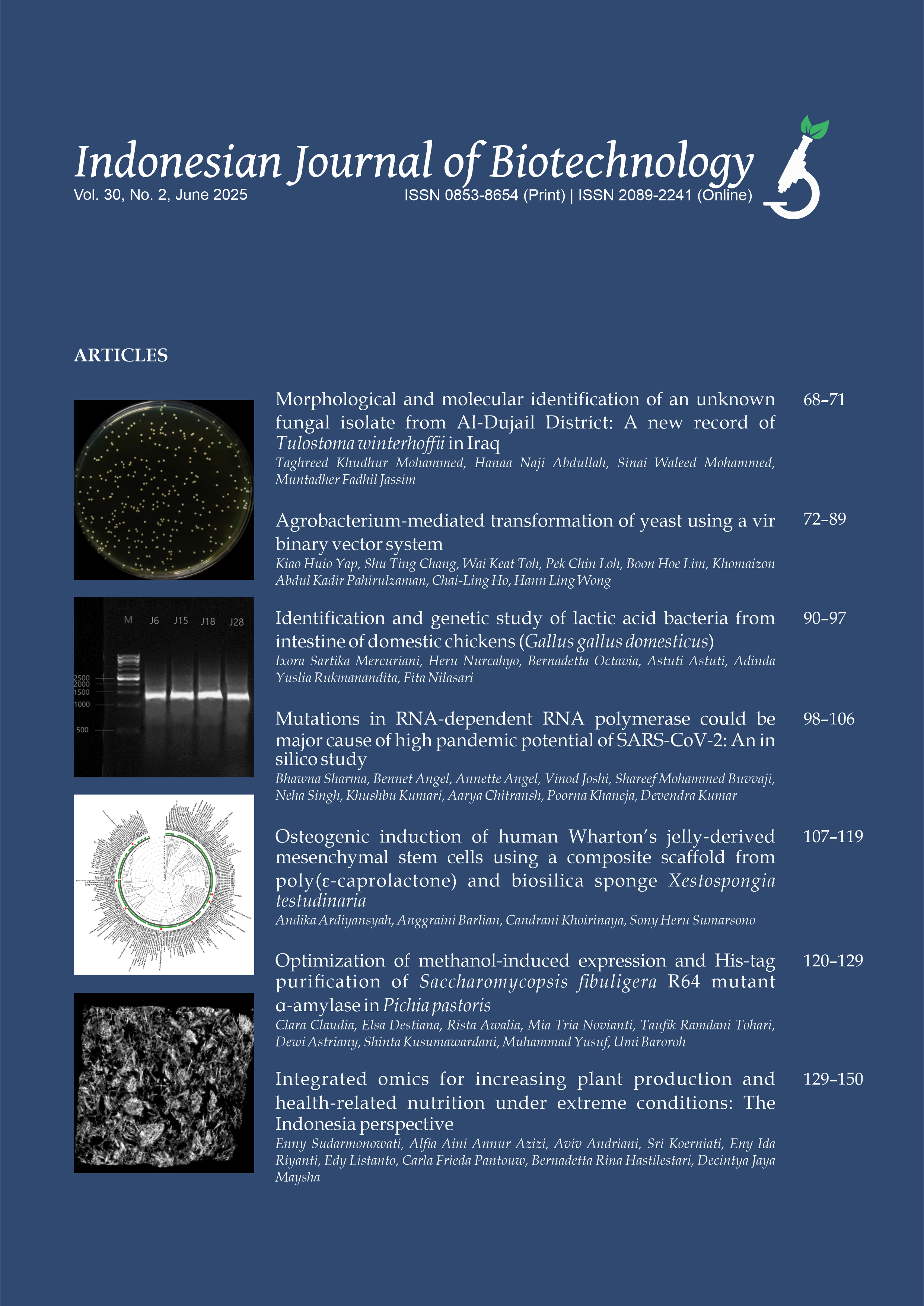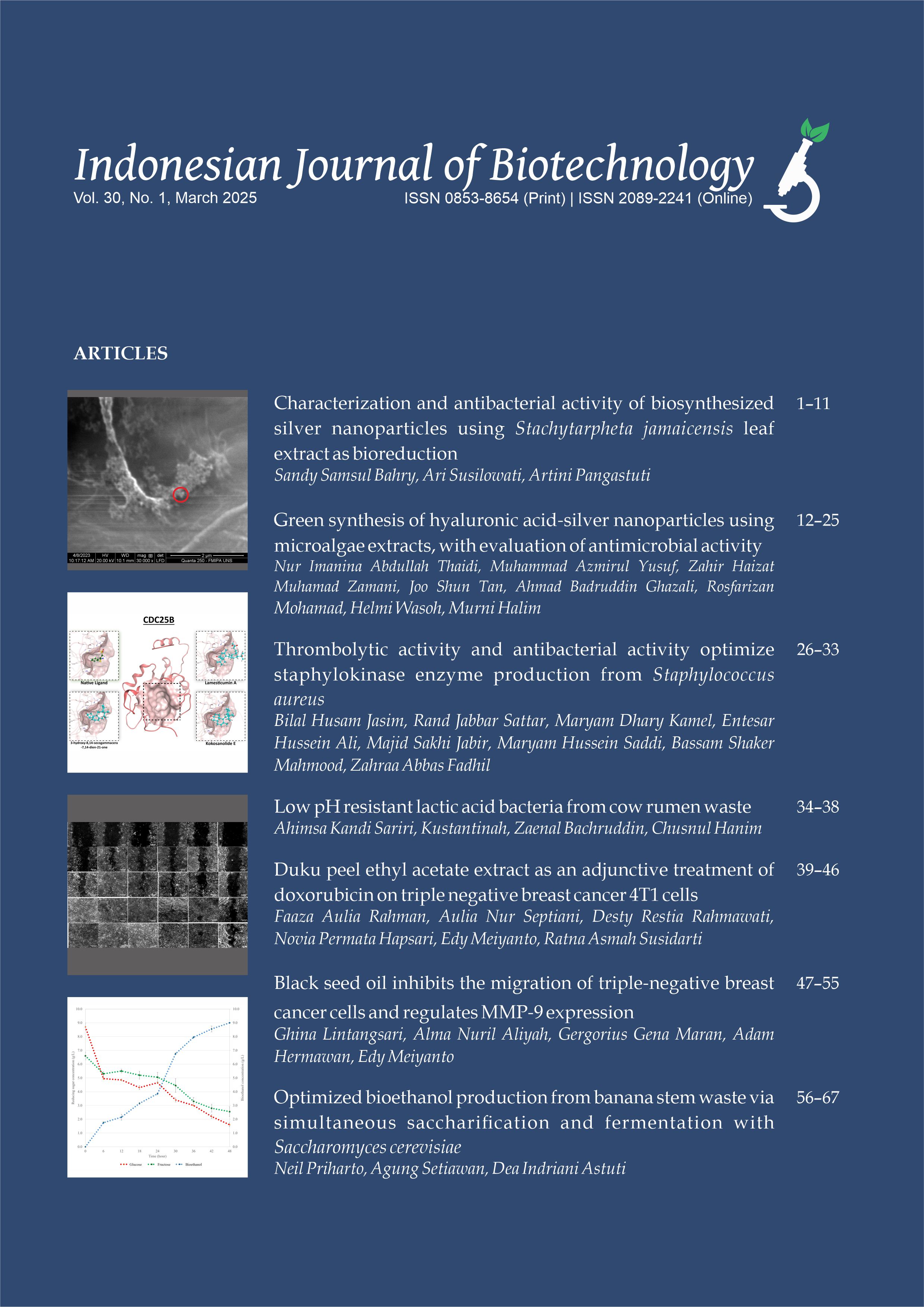Characterization of envelope-transmembrane Gene of Jembrana Disease Virus Tabanan 1995 Isolate
Asmarani Kusumawati(1*), Rarastoeti Pratiwi(2), Pudji Astuti(3), Penny Humaidah Hamid(4)
(1)
(2)
(3)
(4)
(*) Corresponding Author
Abstract
The availability of specific and rapid detection methods is essential for monitoring the health status of farmed species, particularly in viral disease as in this case early diagnosis is a critical factor in containing disease outbreaks. Jembrana Disease Virus (JDV) is a lentivirus that causes an acute, severe disease syndrome in infected Bali cattle in Indonesia, resulting in heavy economic losses because of the high mortalities. The virus-host interaction and the modes of transmission are still unknown. The goal of the research was to design
a probe candidate of Jembrana Disease Virus based on envelope-transmembrane (env-tm) gene to optimize Jembrana disease detection method. The DNA fragment derived from env-tm of JDV was used, cloned in pGEX-TM and expressed in E.coli DH 5α. Sequence analysis was conducted with BLAST programs from NCBI. Sequence analyses of the fragments of env-tm clone, indicated that it has a very closed genetic relation with 97,68% homology identity. Probe was designed based on the conserved region of env-tm using Geneious resulted in JT2 252 bp long. BLAST analyses showed that probes had high specifity to other strains of JDV in Indonesia.
Key words : probe, env-tm, JDV, specifity, sensitivity.
a probe candidate of Jembrana Disease Virus based on envelope-transmembrane (env-tm) gene to optimize Jembrana disease detection method. The DNA fragment derived from env-tm of JDV was used, cloned in pGEX-TM and expressed in E.coli DH 5α. Sequence analysis was conducted with BLAST programs from NCBI. Sequence analyses of the fragments of env-tm clone, indicated that it has a very closed genetic relation with 97,68% homology identity. Probe was designed based on the conserved region of env-tm using Geneious resulted in JT2 252 bp long. BLAST analyses showed that probes had high specifity to other strains of JDV in Indonesia.
Key words : probe, env-tm, JDV, specifity, sensitivity.
Full Text:
PDFArticle Metrics
Refbacks
- There are currently no refbacks.
Copyright (c) 2015 Indonesian Journal of Biotechnology









